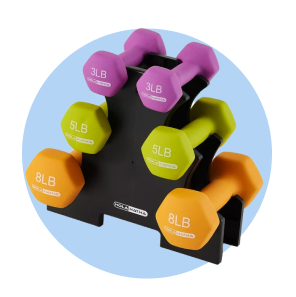
7 SEO Tips for Small Businesses Looking For More Clients
Improve your search ranking
Studies show that nearly three-quarters of all clicks happen thanks to organic search results—links that Google deems important enough to display.
Adopting a robust search engine optimization (SEO) strategy is essential for small businesses looking to expand their reach on the internet. These SEO tips for small businesses will help you attract more visitors and convert them into paying clients.
7 essential SEO tips for small businesses
1. Choose keywords and build a content plan around them
Tools like Ahrefs, Semrush and even Google’s Search Console allow you to look at the keywords your current and future clients are searching for. Many of these tools will also let you know how difficult it would be for your website to rank for each keyword.
General and high search volume keywords—like “how to change a tire”—are far more challenging to rank for than more specific, low search volume keywords—such as “how to fix a tire on a Rock Creek mountain bike.” Weigh keyword difficulty against the type of audience you’re looking to capture and the time and resources you have available.
Once you’ve chosen your keywords, build helpful resources like listicles, long-form opinion pieces and how-tos. Ensure that the keywords make sense for the content you create, and use them liberally in the titles, headers and bodies of the articles.
2. Avoid keyword stuffing
If you use too many keywords at once—to the point where your content doesn’t really say much of anything at all—Google will devalue your post within search rankings.
It’s not just Google that can spot keyword stuffing. Visitors who arrive at your site looking for answers to their questions will leave if your posts read like an obvious SEO play. That will negatively impact bounce rate (the amount of time between when a user arrives at and leaves your site), and sink your search engine ranking.
Write for your clients first and Google second. The SEO magic will follow.

3. Develop quality, helpful content
Even if your article meets all of Google’s keyword criteria, visitors will leave if it doesn’t answer their questions. Ensuring that your content is genuinely helpful will go a long way to proving your expertise to the search engine algorithm as well as the people who visit.
Consider offering statistics from your own data analysis or personal experiences that could be relevant to potential clients. This perspective will help you stand out from the competition.
If your content is relevant, other websites will see it as a resource worth linking to within their own content. The more websites that backlink to your site, the more trustworthy Google thinks you are.
4. Think local
Google understands that when people search for specific keywords, they’re usually looking for services or businesses located close to them geographically.
Take advantage of this hyperlocal approach by filling out your Google My Business page. Ensure that your website has up-to-date details on all locations and that they’re marked up with Schema tags so Google’s bots can easily parse this information.
Craft content that meets the needs of your community first. Competing for rankings against big national companies and brands is tempting, but if you only provide a service for people within your city or state, reaching people outside that location is a waste of time and resources.
5. Check all the optimization boxes
Google takes more than just content into account when determining search result rankings. Consider the following elements when optimizing your website:
- Title tags should appear on every page.
- Alt text should accompany images to enhance readability for visitors with assistive devices.
- Meta descriptions should be written for every page and should provide a concise summary of the content.
- Sitemaps should offer an easy-to-navigate layout of your entire website, and Google should be able to access it.
- Site speed affects search ranking. Pages that are slow to load can cause visitors to leave and increase your bounce rate.

6. Track your success and keep improving
You won’t know if your SEO efforts are paying off unless you evaluate your site’s performance. Google Analytics provides lots of information about where visitors are coming from, what they’re looking for and how long they stayed on your site. Use this to adjust your content or tweak your layout to improve results.
7. Be prepared for the long haul
This is one of the most important SEO tips for small businesses: keep at it! It will take a few months of regular content updates and website optimizations for you to see the fruits of your labor. Sticking with a solid strategy will pay dividends down the line.
Walmart Business+ has your back
At Walmart Business+, we’re with you every step of the way as you craft your own small business SEO success stories. Shop a curated selection of computers, office supplies and other essentials and get free shipping with no order minimum1. Make your dollar go even further by earning 2% in Walmart Business Rewards on orders $250 or more2. Sign up for Walmart Business+ and start saving money today.
1Excludes most Marketplace items, freight & certain location surcharges.
2Exclusions apply. See full terms for details.
Exciting news awaits
Hear firsthand about new products, features & promotions.
By clicking submit, you agree to receive emails about Walmart Business and acknowledge you have read and agreed to our Terms of use and Privacy Policy.











